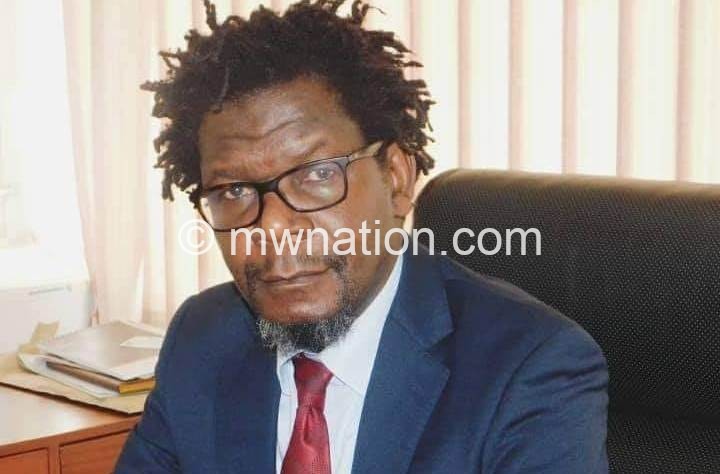AG faults govt on public officers interdiction
Attorney General (AG) Chikosa Silungwe has written the Department of Human Resource Management and Development and the Accountant General’s office stating that the withholding of pay for public officers on interdiction is illegal.
In the letter dated February 4 2021, Silungwe says his office has been receiving communication from various law firms about public officers being interdicted without pay.
It reads in part: “My office has received communication from various law firms representing public officers who are on interdiction without pay. The communication relates to reinstatement of those officers to government payroll.”
Silungwe further states that officers should not be denied their pay regardless of the circumstances that led to their interdiction, stressing that is illegal.

When contacted for more details yesterday, the AG declined to comment, saying he was already being judged on social media for his stand on the interdictions.
However, he said he does not just make communication for the sake of it.
But speaking on condition of anonymity, a legal expert described the AG’s reasoning as troubling, saying his proposition may have far reaching implications.
Said the legal commentator: “This proposition is troubling. Where a public officer is interdicted because he has stolen K10 billion in circumstances where it is clear that the money is not recoverable, there is no legal or moral basis to continue paying the officer.
“If the legal position is as stated by the Attorney General, then all the Cashgate suspects must now be paid immediately.”
According to Regulation 40 (1) (a) of the Malawi Public Service
Regulations, where an employee in the government is interdicted on grounds of misappropriation of public funds, his pay shall be withheld. Regulations, where an employee
However, labour law expert Mauya Msuku supported the AG’s stand, saying monetary punishments by employers are prohibited.
He said: “An interdiction is based on an allegation and it is wrong to punish someone before they are proven guilty.
“When you suspend someone, withholding their money is punishment and the law does not allow monetary punishments.”
Msuku added that the AG should have gone further to give guidance on the period that someone can be on interdiction, and situations that warrant interdiction.
In civil cause number 254 of 2016 between Dr Gift Sten Chinomba (petitioner) and the Attorney General (defendant), on Chinomba’s interdiction from public office on no pay as part of a disciplinary process, High Court Judge Mike Tembo ruled that it was wrong to withhold pay of officers on interdiction.
The judge stated that although Chinomba was interdicted on suspected misappropriation of public funds, interdiction on no pay is in contravention of the statutory provisions on discipline as contained in Section 56 (3) and (4) of the Employment Act.
Reads the ruling in part: “ The plaintiff will, therefore, remain on interdiction but with pay. This should spur the defendant to take disciplinary action against the plaintiff fairly quickly knowing that he is on pay while on interdiction.”
The court further observed that in public service, employees are normally put on interdiction on no pay which results in the responsible authorities forgetting to finalise the disciplinary process





